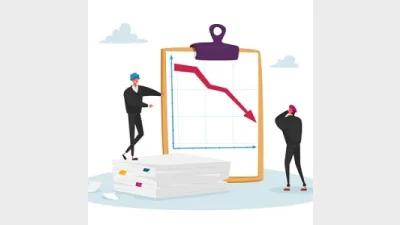One-fifth of super funds to fail Choice performance test



Analysis from SuperRatings predicts that approximately 20% of Choice superannuation options will fail this year’s performance test due in August.
Last year, the regulator found that 13 of the 80 products (16%) assessed were deemed to have underperformed the benchmark by more than 50 basis points. Since August when the results were released, 77% of these providers had announced their intentions to either merge or exit the industry.
SuperRating’s analysis assessed over 650 options across Trustee Directed Products, including retail, industry, corporate, and government funds, excluding MySuper products and accounted for the industry’s performance to 31 March 2022, using its newly-developed Performance Test IQ tool.
“This year, we expect to see the second round of MySuper results likely causing some MySuper solutions to be prevented from accepting new members. This will be accompanied by the first assessment of Choice options under the test,” the research house said.
Breaking down the analysis further, SuperRatings found that all option types were facing challenges.
“In particular, options with growth assets, such as equities, making up between 91%-100% of assets held were most likely to fail the test, with 26% of these options estimated as failing based on performance over the eight years to 31 March, 2022. Capital Stable options with between 20%-40% growth assets are also facing a challenge to pass the test, with around a quarter of these options estimated as failing,” it said.
As the performance test captured investment returns over an eight-year period, funds had limited ability to shift their relative long-term position against the benchmark, according to SuperRatings.
“However, with the test only accounting for the most recent level of fees charged, funds do have the ability to make fee changes to improve their performance test outcomes.”
The research house noted the significant impact on those products which failed the first performance test.
“Having an industry wide benchmark gives funds a clear target with significant potential benefit for members, however ensuring the test is appropriately capturing the nuances of the range of investment options in the industry remains a challenge.
“The regulator will be releasing the results of its second annual performance test later this year, with the industry closely monitoring potential outcomes.”
Recommended for you
Australia’s largest super funds have deepened private markets exposure, scaled internal investment capability, and balanced liquidity as competition and consolidation intensify.
The ATO has revealed nearly $19 billion in lost and unclaimed super, urging over 7 million Australians to reclaim their savings.
The industry super fund has launched a new digital experience designed to make retirement preparation simpler and more personalised for its members.
A hold in the cash rate during the upcoming November monetary policy meeting appears to now be a certainty off the back of skyrocketing inflation during the September quarter.









